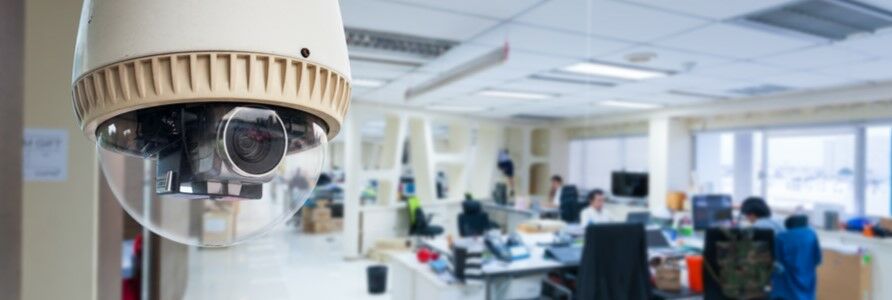Electronic surveillance
Reason
There are many reasons why an employer may want to implement a surveillance system in the workplace. Sometimes the employer wants to make sure that employees are not spending their workday looking at private sites on the Internet, abusing the company phone, or working in a satisfactory manner.
Data protection
When an employer sets up an employee monitoring system, it collects a lot of personal data, such as the websites visited or the content of e-mails.
Employee monitoring can seriously infringe on the privacy and personality of employees. Furthermore, employees can quickly feel spied on or pressured, which can affect their mental health.
The employer is obliged to respect strict conditions and procedures before setting up such a system. It is imperative that the employer first issues a regulation on electronic surveillance that complies in all respects with the requirements laid down by the Federal Data Protection Commissioner. In particular, the employee must be informed about the electronic surveillance.
Purpose
The surveillance system must meet an objective need of the employer, such as the security of the company's data or the control of the quality of the employee's work. On the other hand, surveillance set up to monitor the behavior of employees at their workstations is strictly prohibited.
Proportionality
Installation of a GPS that tracks the employee's movements in the company car or spyware on the computer that allows the employer to see all the websites consulted: some surveillance systems seriously infringe on the employee's privacy. The employer must have an important objective reason to justify such surveillance of the employee. Otherwise, the system will be disproportionate and the surveillance will be unlawful.
Telephone
For reasons of quality control or training, particularly in customer service, the employer is tempted to set up a telephone tap. Such surveillance is delicate. In any case, phone tapping without the employee's knowledge is strictly prohibited.
When the employee's cell phone is used as both a business and a private phone, the employer often wishes to have access to it in order to distinguish between the employee's business and private expenses. This is a monitoring issue that cannot be put in place without additional monitoring.
Computers and computer systems
Employees who regularly use computers, company computer systems and the Internet for their work are becoming increasingly numerous. Between employees who spend time on private websites during work, those who consult pornographic or even illegal websites and employees who insult the employer on social networks: the employer's fears are real.
The employer will be able to set up electronic surveillance if he respects a certain number of conditions and a strict procedure defined by the Federal Data Protection Commissioner. For example, it will not be possible to monitor employees' individual Internet use from the outset.
Teleworking
Out of sight, out of mind? When an employee works from home, the employer's ability to monitor the employee's work and schedule is more limited. Before using invasive electronic surveillance systems, such as webcam video surveillance or spyware installation, the employer should use systems that are less invasive of the employee's privacy.
Personal data
In all situations, the employer must ensure that the personal data of his/her employees is protected. The employer must take appropriate measures to ensure the confidentiality of data such as video recordings or the employee's business movements. After a certain period of time, the data must be destroyed.
Sanctions
When electronic surveillance reveals infractions or abuses on the part of an employee, the employer may take sanctions against him or her, provided that the surveillance he or she has put in place is lawful. These sanctions can range from a simple warning to termination with immediate effect.
In any case, it is recommended that the employer issues a written directive on surveillance in the workplace.

